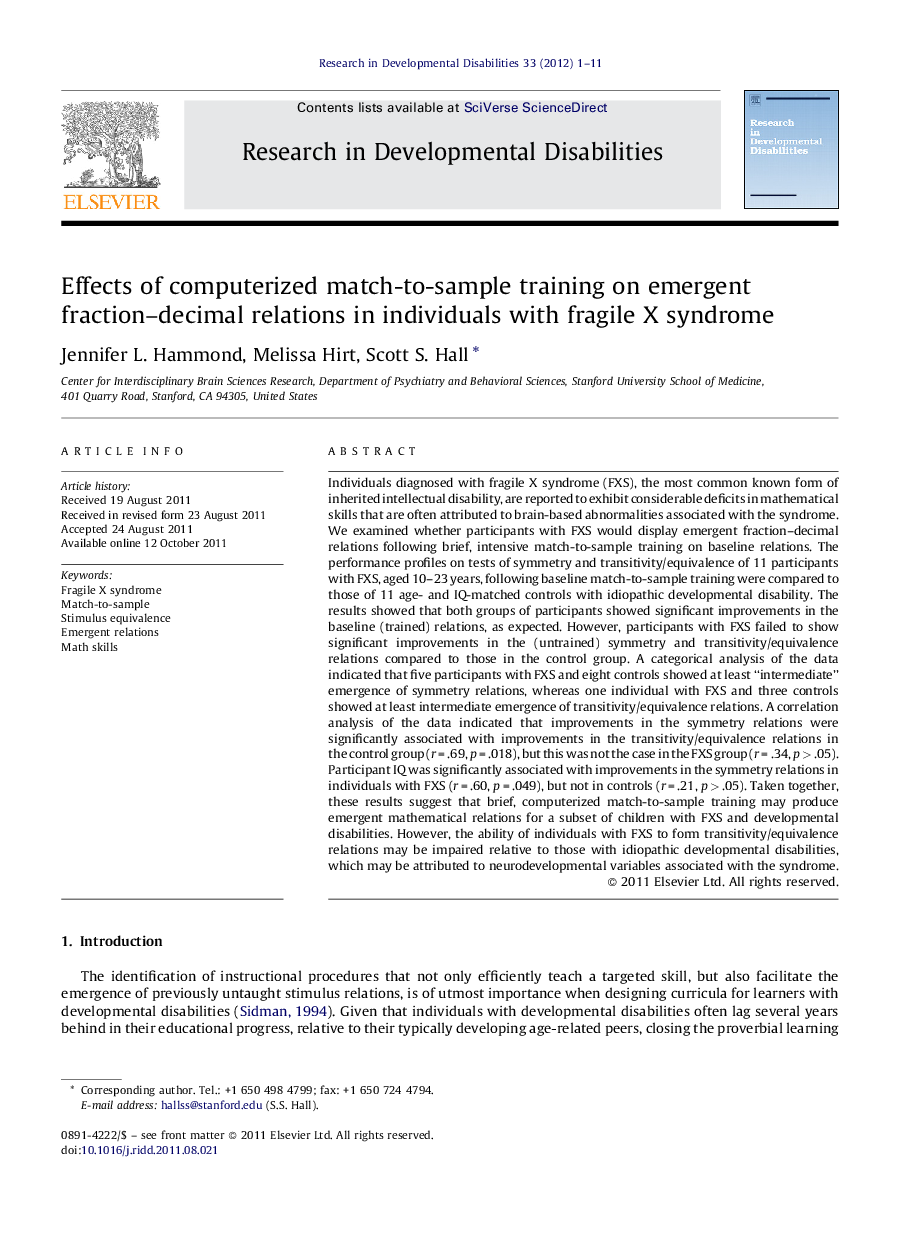| کد مقاله | کد نشریه | سال انتشار | مقاله انگلیسی | نسخه تمام متن |
|---|---|---|---|---|
| 371619 | 621935 | 2012 | 11 صفحه PDF | دانلود رایگان |

Individuals diagnosed with fragile X syndrome (FXS), the most common known form of inherited intellectual disability, are reported to exhibit considerable deficits in mathematical skills that are often attributed to brain-based abnormalities associated with the syndrome. We examined whether participants with FXS would display emergent fraction–decimal relations following brief, intensive match-to-sample training on baseline relations. The performance profiles on tests of symmetry and transitivity/equivalence of 11 participants with FXS, aged 10–23 years, following baseline match-to-sample training were compared to those of 11 age- and IQ-matched controls with idiopathic developmental disability. The results showed that both groups of participants showed significant improvements in the baseline (trained) relations, as expected. However, participants with FXS failed to show significant improvements in the (untrained) symmetry and transitivity/equivalence relations compared to those in the control group. A categorical analysis of the data indicated that five participants with FXS and eight controls showed at least “intermediate” emergence of symmetry relations, whereas one individual with FXS and three controls showed at least intermediate emergence of transitivity/equivalence relations. A correlation analysis of the data indicated that improvements in the symmetry relations were significantly associated with improvements in the transitivity/equivalence relations in the control group (r = .69, p = .018), but this was not the case in the FXS group (r = .34, p > .05). Participant IQ was significantly associated with improvements in the symmetry relations in individuals with FXS (r = .60, p = .049), but not in controls (r = .21, p > .05). Taken together, these results suggest that brief, computerized match-to-sample training may produce emergent mathematical relations for a subset of children with FXS and developmental disabilities. However, the ability of individuals with FXS to form transitivity/equivalence relations may be impaired relative to those with idiopathic developmental disabilities, which may be attributed to neurodevelopmental variables associated with the syndrome.
► Individuals with fragile X syndrome (FXS) may be impaired in concept formation.
► We compared the performance of individuals with FXS to age and IQ-matched controls.
► Individuals with fragile X failed to show improvement on emergent equivalence tests compared to controls.
► This impairment may be attributed to neurodevelopmental variables associated with the syndrome.
Journal: Research in Developmental Disabilities - Volume 33, Issue 1, January–February 2012, Pages 1–11